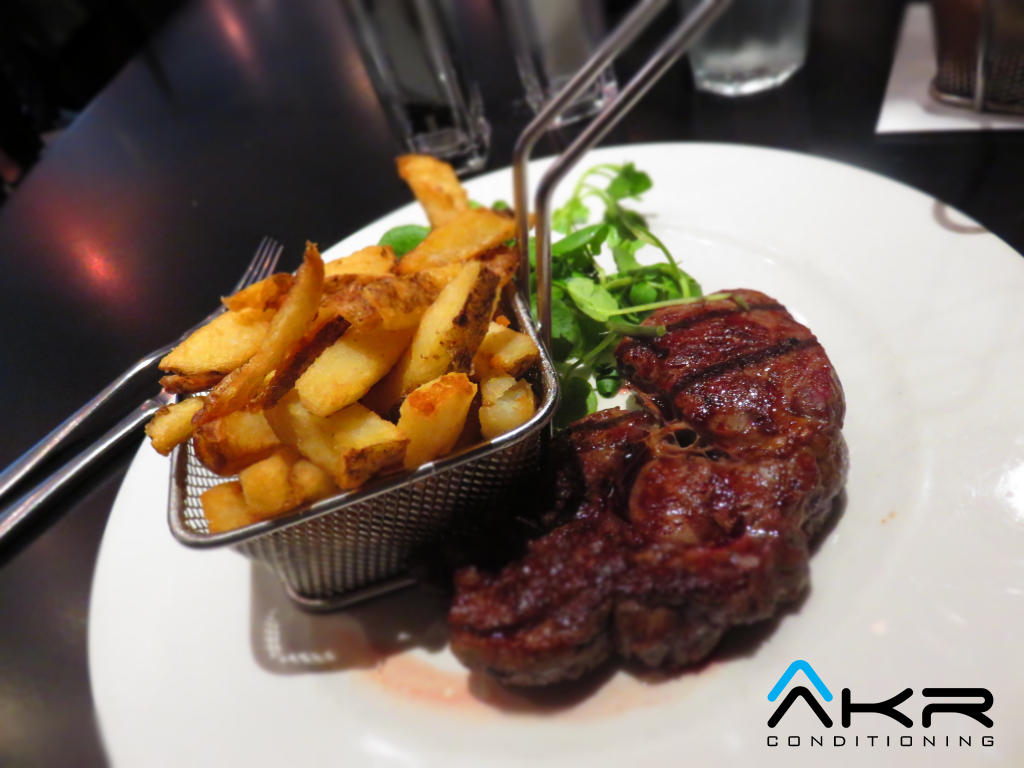It seems that everybody wants to lose weight. Or lose fat. Tone up a little. Most would agree that these are the main goals we see in health and fitness.
Weight loss strategies range from well intentioned, to curious, to ill informed and …well, just ridiculous. There’s a lot of ridiculous. Especially when we throw increasing desperation and impatience into the mix.
I get that people want to lose weight or lose fat. But in almost every case, we forget to ask where our weight loss strategy is going to take us. Where, and how, will the journey end? After all, research frequently shows that a large percentage of dieters regain more weight than they lose on the diet in the first place. What’s going to make you different?
Before starting any weight loss or diet strategy, I urge you to consider what you’re really losing. It would be great if it was fat we lost – and often it is in the short term – but we usually lose a few other things along the way. Things that prove to be just the beginning of our troubles…
- Water
The number on the scales is down! Success! …Well …maybe not. Initial results seen in new diets – especially low-carb diets – are often due to a loss of water rather than any real fat loss. This wouldn’t be an issue, except than when a person eats more carbs again (which is inevitable), they regain the water weight, creating the illusion that carbs make them fat. Carbs get the blame and so begins a love-hate, restrict-binge relationship with the innocent carbohydrate.
- Muscle
A low calorie, low protein diet, combined with lots of cardio and little resistance training is a fairly typical weight loss approach. It’s also a great recipe to lose muscle. If you lose muscle, don’t expect to look ‘toned’. Or feel particularly strong or athletic. There will also likely be consequences for your metabolic rate. Moreover, muscle loss is an accepted part of aging, why exacerbate that?
- Metabolic rate
Your metabolic rate is the main contributor to the total calories you burn in a day. While some loss in metabolic rate appears inevitable, cutting too many calories too soon will likely leave your metabolism in the gutter – especially if you’re losing muscle too. So now that you’re burning a lot fewer calories than before, you’ll find you have to be stricter and stricter with your diet just to maintain the same mediocre results. Sound familiar?
- Normal eating behaviours
With this increased strictness – and often a fear of certain foods – don’t be surprised to see normal eating behaviours to go out the window. The more determined, the more focussed, the more rigid you try to be, the worse things get. Restrict-binge cycles are rife in fitness enthusiasts and I know from experience that they’re a heart-breaking place to be.
- Social life
Food dominates your thoughts. You begin to avoid social situations that might threaten your ability to stick to your diet. Or you worry and plan and compensate unnecessarily for them. You can’t have any fun now …unless it involves exercising.
- Confidence & self esteem
As hard as you try, you find that you can’t stick to any diet for a reasonable period of time. You take that failure personally – it’s a clearly character flaw. You’re somehow weak or broken and your self-esteem suffers.
- Perspective
You might make some improvements. But they get overlooked. You’re not as slim as you’d like to be yet. You continually make unfavourable comparisons with others. You might otherwise have a great life – a career, a family, a nice home, steady finances – but your happiness is dictated by that number on the scales. And the judgements you make of your body. It has become everything now.
- Faith
Sooner or later you lose faith. You give up on the idea that you can be healthy and lean. You’d probably be happy just to have your old, normal eating behaviours and social life back. But after what seems like a lifetime dominated by food and body weight anxiety, you begin to accept things as they are.
This might already describe you. Or it perhaps it seems over the top. Maybe it is. My point is that it’s not uncommon for people to end up a lot worse off than they were before they started dieting. So if you’re dieting, or beginning to start a diet, I respectfully urge you to consider: what are you really losing?
BIG IDEA: Everybody is trying to lose weight. Common weight loss approaches not only have us losing muscle and our metabolic rate, but we also set ourselves up to lose a whole lot more.
TAKEAWAY: Losing weight should make your life better, not worse. Before you start dieting, consider the end point. Is it sustainable? Will it let you live your life? Are you preserving muscle mass, metabolism and normal eating behaviours? If not, what happens when you stop?
ACTION STEP: Click below to download the Fad Free Fat Loss guidelines that I share with my personal training clients.
Always Keep Reaching!
Mike






